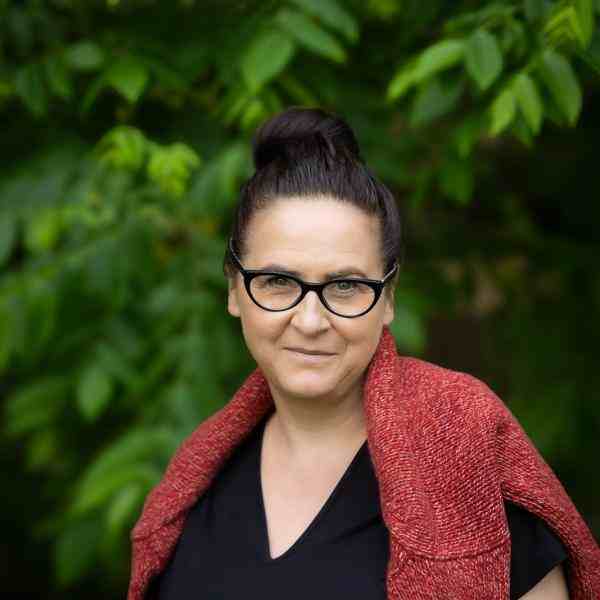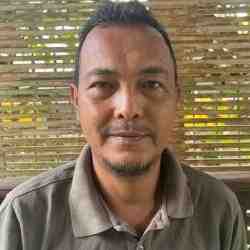前書き
Marta is empowering citizens to take responsibility and keep the government accountable for managing the country’s forests sustainably and for the benefit of all. By making tools and information available to all citizens, and helping them engage at different levels of decision-making – from local to national, Marta is helping people become active agents in democracy.
新しいアイデア
Forests cover close to 30% of Poland, and people have contact with nature primarily through forests. 80% of forests in Poland are state-owned and managed by The State Forest Holding (SFH) with a 'state within a state' bureaucracy characterized by top-down decision-making, a narrative about forests that focuses almost exclusively on the economic function of the forest (timber production), and a disregard for its statutory social and ecological function.
Marta views public forests as citizens' forests, not the government's. Citizens should be hosts, not guests, in the forests. However, they have had no influence and, therefore, no responsibility for them. Marta initiated a social movement to let people take responsibility for forests and hold the government accountable.
Marta’s work started in her own village, hearing about an upcoming clearcutting of a local forest, informing others in the village, and organizing together to act. She learned that even the most basic tools were not in people’s hands. A first step was to extract public information from the government and decipher the highly convoluted language. She then co-authored an online map that showed all citizens which forests were slated for cutting and when. Over 200,000 people viewed the map in the first month; more than 3,000 asked for more information. With that information and public enthusiasm as a base, Marta has been creating capacity building and organizing tools for citizens. These tools help people understand what the information is and what it means, how the decisions are made, where they can have influence in those decisions, and how they can be an active part contributing to long-term health of the forests.
Her organization, "Forests and Citizens", has become a backbone structure supporting grassroots initiatives and creating a new narrative about forests. When Marta first mapped local citizen forest initiatives, there were only 30 in Poland. Currently, there are 456 initiatives all over Poland. Where local community map hollow trees, takes care of picnic places in the forest, by walking, demonstrates its attachment to the forests and demands more excellent protection and genuine participation in decision-making about the forest, encourages families to spend more time in forests or citizens practice democracy by requesting information and law basics from The State Forest Holding and acting upon those.
Through all of this, she is shifting the narrative about how people interact with forests from managerial to "we are nature". "Forests and Citizens" creates and promotes a multi-perspective, eco-centric narrative about forests. During the election campaign (2023), forest policy entered the mainstream of political debate for the first time. Important provisions regarding forest management were included in the party programs. Forest Manifest, co-created by Marta and six CSOs (among them organizations founded by Ashoka Fellows) with input from over 250 local initiatives, was signed by candidates, out of which 40 are now MPs and five Ministers in the 2024 government. As a result, the coalition agreement included provisions announcing a thorough reform of forest policy, including 20 percent forests without logging, a ban on selling raw wood abroad, citizens’ control over State Forests or new national parks. Marta and her team strive for systemic changes in law and procedures, leading not only to protect forests but also to let citizens be involved in co-decision-making and fundamental changes for the good of forests and all of us. The new government has initiated the process of forest policy reform. Forests and Citizens are making sure that the grassroots movement remains actively engaged in the decision making processes related to the reform.
Marta has realized that it is not only in Poland that citizens do not exercise the right to public information regarding forest management. She has conducted research in European countries and is currently exploring how those experiences might be helpful to other countries. Marta also believes that the tools they are creating to work constructively with the government are applicable not only to protecting forests but also other natural resources as wetlands and rivers.
問題
Forests are critical ecosystems, providing habitats for most of the planet's species and livelihoods for nearly one billion people. According to the Polish Forest Act of 1991 which created a legal backbone to the current forest governance, forest management should be sustainable – it should 'ensure the long-term preservation of biological diversity, productivity, regenerative potential, longevity, and capacity to fulfill all important protective (ecological), economic and social functions.' It means that according to law, the forest shapes the global and local climate, influences the composition of the atmosphere, regulates the water cycle in nature, protects the soil, as well as the forest creates favorable health and recreational conditions for society.
However, faulty environmental governance results in forest policies and forest management which do not reflect the essential needs and concerns of society and nature and do not respond to climate crisis challenges. Since the democratic transformation in 1989, forests have not been restituted. The 1991 Forest Act entrusted management of most public forests to the State Forest Holding while providing the organization with significant independence from the government, a monopoly on the wood market, access to the financial gains involved, and considerable freedom in determining forest management goals and methods. Large quantities of timber are harvested in public forests based on plans that are practically beyond social and political control and largely disregard the social and natural functions of forests.
Moreover, people do not have the knowledge and do not take responsibility for the state of nature – forests – surrounding them and take an active part in nature – forests – governance. Older data indicate a negative trend in citizens' interest in forests. In 2013, every fifth person went to the forest, while seven years earlier (2006) - at least every third person. In early 2019, Marta was able to identify only 30 grassroots initiatives defending forests in the entire Poland. Paradoxically, the COVID-19 pandemic had a positive side. People started spending more time in nature. Although 93% of Polish women and men believe that protecting Polish forests is essential, more than half do not know what sustainable forest management means, which is of fundamental importance for the condition of forests. But yet, there is widespread support (74,5%) for a ban on clearcuts. At the same time, 79.2% of respondents believe that local communities should have a more significant say in decisions regarding forests than they currently do.
Human-centric narratives about nature and forests lead to the devastation of nature on a massive scale. Foresters employed by the SFH represent a 'managerial discourse' to forest management, informed by forestry science and professional experience. This discourse centers on ensuring a sustainable yield of timber while sustaining a proper sanitary state of forests and their ecological and social functions. It is worth noting that economic studies by Giergiczny and Żylicz confirm that the value of ecosystemic services provided to society by forests is often much higher than the profit made from selling timber.
戦略
Marta started to act to protect "her own" forest and quickly realized that even if people wanted to get engaged in their local forest's matters, they did not know how. That’s why she used her own experience to create a strategy that focuses, on the one hand, on community organizing and capacity development and, on the other, on data, research, and advocacy. Both of those pillars are connected through work towards narrative shift.
When Marta started there was no easy way to understand how to engage with protecting the forests. People generally felt helpless in the face of the narrative of state forests as economic resources for the country. When Marta initiated her local forest protection group, she mapped similar initiatives in Poland and found only 30 local forest protection initiatives. Marta created an online map of these local initiatives to let these engaged citizen groups know they were not alone. “Forests and Citizens” then directly supported the launch of almost 200 new initiatives and work directly with them. With independent scaling of these local groups now, Marta’s organization constantly updates the map, that now showcases 456 such initiatives, and the number continues to grow.
To inform society about planned logging and because the State Forest Holding unlawfully refused to provide data on planned fellings, Marta decided to collect the information and showcase it for all to see. Marta and her team gathered data from all 429 forest districts. Just gathering the data took Marta and her team around 143 hours. They then had to clean, merge the data and decipher the information. With that data and with a tech expert's support, "Forests and Citizens" created a "Before they cut down your forest" map. For the first time, public access now had access to understandable information about economic plans for public forests, which sparked a discussion about the scale of timber harvesting in Poland and the lack of social control over forest management. 200 K people visited the map within the first month. It lets citizens know about plans for "their own" forests and act in their local communities. "Forests and Citizens" systemically acquires data from State Forests and makes it publicly available. It also shows the scale of cuts in the whole country. Seeing that they could no longer obfuscate, the State Forest Holding is now making data much more accessible.
When needed, "Forests and Citizens" uses cases in administrative courts to gain access to information. They have won over 50 cases in administrative courts with the State Forests, including 10 in the Supreme Administrative Court, and they effectively train foresters in the citizens’ right to access information.
Citizens need to be informed that they should and can act and to know what to do if they wanted to protect their forest. That's why "Forests and Citizens" creates replicable and scalable tools, learning materials, and support mechanisms for local groups and networks protecting local forests. "How to protect the forest?" is a guide and self-paced online course offering knowledge in a friendly form and deep in content, enabling anyone willing to start working for their forest. Marta and her team of teams also commission legal analysis and make it available to the groups, allowing local activists to understand what The State Forest Holding communicates and act smartly. For example, "Forests and Citizens" supports local consultations on forest management plans. They have good practices and strategies for engaging tens and hundreds of citizens to join local consultations.
What is more," Forests and Citizens" networks people so they can create local groups. They encourage groups to develop local networks; thereby, forest activities are increasingly beginning to cover entire regions. There are six local coalitions so far in various parts of Poland.
"Forests and Citizens" builds mutually supportive and effective communities based on shared values and counteracting the isolation of local leaders. As such, they are helping lower burnout and allowing them to lead toward long-term ecological goals. Currently, "Forests and Citizens" develops support on three levels, where they support around 500 people in entry-level groups, 800 people in the advanced groups that are long-term active and ready to act on an advocacy level, and 100 leaders in an experienced track who prepared to go beyond their local contacts. More and more voices say that in addition to the protection of forests, there are also demands for the protection of meadows, wetlands, and rivers and the creation of connected protective areas around cities, which Marta considers a natural next step.
The "Forests and Citizens" strategy includes narrative building and advocacy next to the mentioned "data activism" and community building. The narrative and advocacy tool, which Marta co-developed with 6 CSOs and over 250 local initiatives, was “ Forest Manifest” with ten very concrete postulates. The first demand is to exclude at least 20% of forests from economic use to give them back to people and nature. The Manifest was also used to prepare the first electoral forest guide, helping voters to understand candidates’ views in forest related matters. It allowed for comparing candidates to the parliament regarding their position towards the forest, with over 300 candidates entering their answers to the Manifest postulates. As a result of those efforts in forests, the government coalition agreement included provisions announcing a thorough reform of forest policy, including 20 percent forests without logging, a ban on selling raw wood abroad, and new national parks.
Marta is involved in and documenting a precedent-setting citizen civil lawsuit over a forest, the only one of its kind in Poland. Access to justice in cases related to forests is notoriously difficult in Poland. In 2023 in a key trial for Polish forests passed before the Court of Justice of the EU (CJEU)the court ruled that Poland is violating environmental law and that environmental organizations should be able to challenge the previously untouchable Forest Management Plans in administrative courts. The State Forests immediately attacked the verdict, and citizens still wait for Polish law to adapt to the judgment. At the moment the path taken by Marta and her neighbors in a precedent setting citizen civil lawsuit is the only one available to citizens. However, Marta is convinced that the durability of systemic changes depends mainly on how solid and comprehensive the social movement will be. That's why the human-nature relationship is so essential to Marta. In the upcoming years, Marta wants to make sure that useful elements of “Forests and Citizens” will be disseminated to new context; both internationally, and locally to new ecosystems as wetlands. Moreover, she aims to empower citizens to take responsibility for nature and keep the government accountable.
人
Although Marta was born and raised in Warsaw, the family’s summer house where she spent many summers in her youth in the forest next to a riverbank is what she calls her "place on earth" – a place she regularly returned to when she lived abroad. She considers herself a very rooted nomad since her first 1.5-year experience abroad was in 7th grade when she followed her father to Egypt. After university, Marta became a development practitioner, evaluator, and researcher focusing on the evaluation of advocacy programs for international NGOs (Pact, ActionAid, Mercy Corps, Asia Catalyst, Research Triangle International, Social Impact) and local non-governmental organizations in China, Southeast Asia, Bosnia and Herzegovina, Ukraine and Namibia. Before her return to Poland in 2011, she lived in the People's Republic of China for 12 years. Working with social organizations there, she witnessed how limiting civic activism goes hand in hand with nature's devastation.
All those experiences came in handy in 2018 when Marta learned that the forest bordering the village she moved back to was to be logged. She knew that someone needed to stop the logging. By going door-to-door, canvassing over 200 households, she discovered what the residents of her village thought about the forest and whether they would want to protect this piece of forest. She also found that people barely knew each other and she needed to find a way to bring people together across their shared love of the forest. Her efforts cultivated joint long-term activities that have brought important results. Specifically, Marta's local forest was not destroyed. Through this, Marta experienced firsthand how people can unite around forests and how frustrating and how much time and effort it can take to try to influence forest-related decisions. As initiatives from other places in Poland started to contact Marta to learn about her local experiences, the idea to build a platform organization for local forest initiatives was born.



